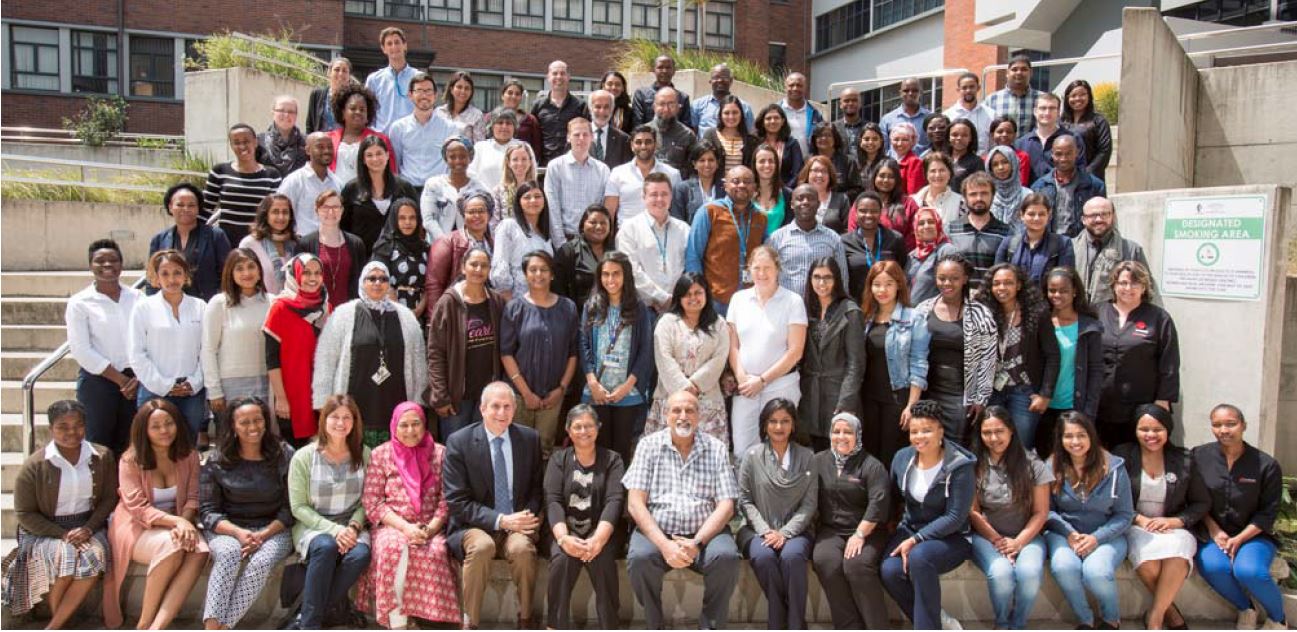Leading expert delivers workshops on clinical trials in South Africa

The Clinical Trials workshop held in Durban at the CAPRISA headquarters was attended by some 100 research clinicians and scientists. Prof Fleming (seated,6th from the right).
Professor Thomas Fleming, PhD, Professor of Statistics and Biostatistics, School of Public Health, University of Washington, was an invited presenter of two workshops on Clinical Trials, held in Durban at the CAPRISA headquarters and at the Wits School of Public Health in Johannesburg. The workshops held on the 16th and 17th October, were jointly hosted by CAPRISA, the South African Medical Research Council, the University of the Witwatersrand (Wits) RHI and Wits Faculty of Health Sciences.
Attended by 200 scientists and researchers in South Africa, the workshops covered four key topics: Hype – Substance, Biomarkers and Surrogate Endpoints, Addressing Missing Data and Essential Consideration in Non-inferiority trials, aimed to strengthen the knowledge and understanding of clinical trials concepts and processes. In addition, he presented a half day workshop on data safety and monitoring committees, analysis and adaptive clinical trial design at the HPTN Africa Regional meeting in Johannesburg.
“Workshop participants at each of these workshops were truly inspired and felt deeply honoured to have had the opportunity to learn from such a world renowned expert in the conduct of clinical trials in such an accessible way. “Many of us did not think that statistics was so much fun” said Quarraisha Abdool Karim.
Professor Fleming is the former Director of the Statistical Center for HIV/AIDS Prevention Trial Network, NIAID. He has authored and co-authored several books and more than 250 research articles in peer-reviewed journals, many regarding the development of state of the art methods for the design, conduct and analysis of clinical trials, and many others reporting the results of landmark trials, including the HIVNET 012 trial that was a gamechanger in reducing mother-to-child transmission of HIV and the HPTN 052 study on the use of ART to prevent transmission of HIV in discordant couples. This research, on which he was senior author, was recognised in 2011 by Science Magazine to be the scientific “Breakthrough of the Year.”
